
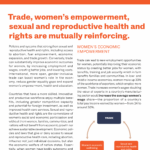
This brief highlights how international, more open, gender-inclusive trade can boost women’s role in the economy, can reduce gender equality gaps, and can expand women’s empower, health and education—and how trade, women’s empowerment and sexual and reproductive health and rights are mutually reinforcing.
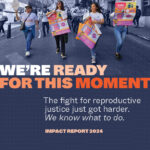

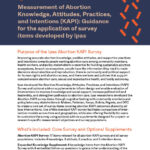
The Abortion Knowledge, Attitudes, Practices, and Intentions (KAPI) Survey with optional add-on supplements, developed by Ipas, is a comprehensive resource designed to assess and enhance community understanding, attitudes and support around abortion care.
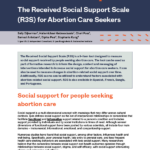
The Received Social Support Scale (R3S) is a 9-item tool designed to measure social support received by people seeking abortion care.
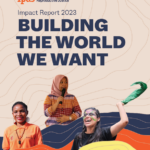
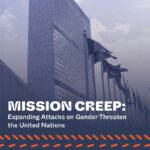
This executive summary provides an overview of findings from a forthcoming 2024 report, Mission Creep: Expanding Attacks on Gender Threaten the United Nations. It provides key findings and recommendations as to how feminist activists, government representatives, and UN officials can prepare an intersectional human rights response that is cross-cutting, bold, and prepared to defend the universality of human rights.
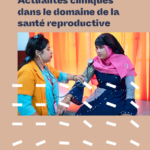
Actualités cliniques dans le domaine de la santé reproductive vise à permettre aux membres du personnel d’Ipas, aux formateurs, à nos partenaires et aux autres professionnels de santé d’avoir accès aux recommandations basées sur des éléments factuels les plus récentes.
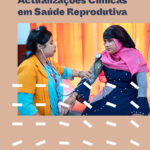
As Actualizações clínicas em saúde reprodutiva foram concebidas para fornecer ao pessoal do Ipas, formadores, parceiros e outros provedores de serviços de saúde acesso a recomendações actualizadas e baseadas na evidência. Em geral, as recomendações são as mesmas que aquelas na edição de 2012 do guia da Organização Mundial da Saúde titulado Abortamento seguro: orientação técnica e de políticas para sistemas de saúde, Segunda edição. Em casos excepcionais, as recomendações foram modificadas de acordo com os contextos em que trabalhamos. Além disso, se houver evidência mais actualizada para informar as recomendações, estas serão actualizadas aqui.
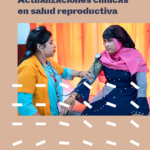
La publicación de Ipas titulada Actualizaciones clínicas en salud reproductiva contiene recomendaciones clínicas actualizadas, basadas en evidencia, sobre la atención integral del aborto, así como nuevos temas y recursos agregados con regularidad. Actualizaciones clínicas en salud reproductiva ofrece información concisa y fácil de leer sobre los servicios de aborto, y combina las evidencias más recientes con lecciones aprendidas de profesionales de la salud a nivel mundial para producir recomendaciones clínicas pertinentes.

On November 17, 2023, the United Nation’s New York City headquarters will host a gathering of the Political Network for Values (PNfV), a major organizing nexus for the global far-right. Founded almost a decade ago, the benignly named PNfV has largely flown under the radar. In this time, the group has blossomed into a key networking hub and training ground for far-right activists and political leaders seeking to diminish or extinguish minorities rights and depreciate multilateral human rights systems—including the United Nations itself.
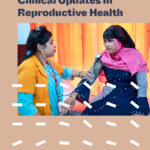
Clinical Updates in Reproductive Health (CURHs) are designed to provide Ipas staff, trainers, partners and other health-care providers with access to up-to-date, evidence-based recommendations. In general, the recommendations are the same as those in the World Health Organization's 2012 Safe Abortion: Technical and Policy Guidance for Health Systems, Second edition. In rare cases, the recommendations have been modified due to the settings where we work. In addition, if there is more current evidence to inform the recommendations, they will be updated here. Please note: Clinical Updates in Reproductive Health provides Ipas’s most up-to-date clinical guidance. Recommendations in this publication supersede any clinical guidance in Ipas curricula that differs from the guidance provided here.
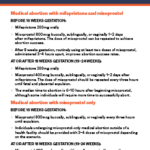
This dosage card serves as a quick reference guide for health-care providers who are administering medical abortion.
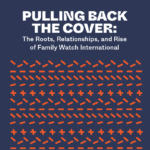
This report aims to shed light on FWI, a group that peddles disinformation and homophobia that is impacting health, education, and human rights policy from Arizona to East Africa and in multilateral spaces like the United Nations.
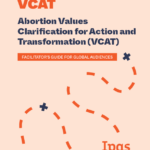
Abortion values clarification for action and transformation (VCAT) is a curriculum designed to support groups in examining the individual and collective values, attitudes and beliefs related to abortion. A VCAT workshop helps make values and actions related to abortion access more conscious. It transforms conversations about abortion fueled by stigma and polarized arguments toward those driven by curiosity, empathy and mutual growth.
Aclaración de valores para transformación y acción (AVTA) respecto al aborto: Guía de facilitación para públicos mundiales. Segunda edición

New research shows why bisexual and pansexual youth need comprehensive sexuality education that meets their needs
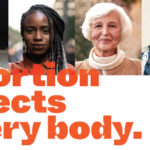
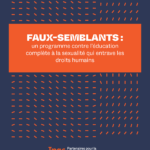
Malgré l’impact positif avéré de l’éducation sexuelle complète sur la santé et les droits sexuels et reproductifs (SDSR) des adolescents, il existe un mouvement croissant d’opposition aux programmes scolaires fondés sur des motifs moraux ou religieux. Au cours de la dernière décennie, avec l’intégration croissante de l’éducation sexuelle complète (ECS), les principaux acteurs internationaux anti-droits basés principalement aux États-Unis ont mobilisé des activistes des pays du Sud, en particulier d’Afrique et d’Amérique latine, pour plaider dans les espaces des Nations Unies (ONU) contre les droits des femmes et des jeunes à l’information et aux services de SDSR.
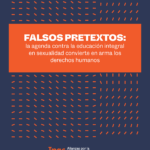
A pesar del impacto positivo comprobado de la educación sexual integral en la salud y los derechos sexuales y reproductivos (SDSR) de los adolescentes, existe un movimiento creciente que se opone a los planes de estudio basados en motivos morales o religiosos. Durante la última década, con un aumento en la incorporación de la educación sexual integral (CSE), las principales partes interesadas internacionales contra los derechos con sede principalmente en los Estados Unidos han estado movilizando a activistas del Sur Global, particularmente de África y América Latina, para abogar en los espacios de las Naciones Unidas (ONU) contra los derechos de las mujeres y los jóvenes a la información y los servicios de SDSR.

